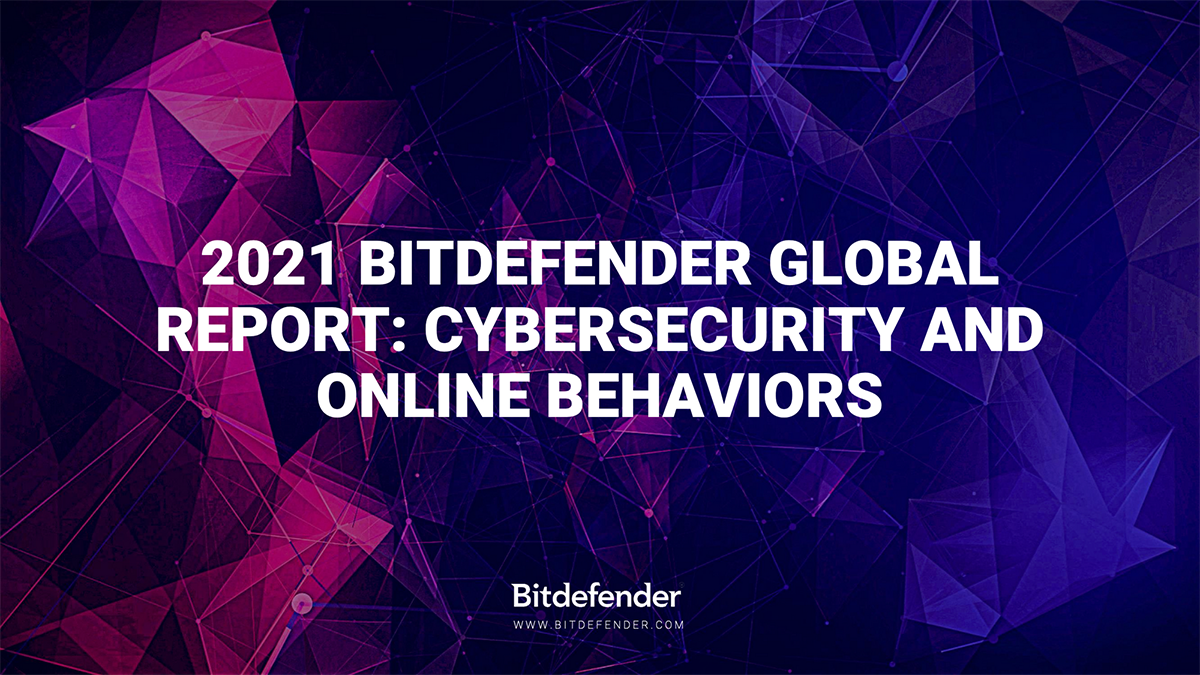
In support of Cybersecurity Awareness Month, Bitdefender released a new study that revealed six in 10 internet users faced at least one cyber threat in the past year, yet many shun security solutions on devices they use most often. This is just one of several interesting findings in the report.
From June to August 2021, Bitdefender worked with iSense Solutions (an independent market research company) to explore attitudes and behaviors towards cybersecurity threats and vulnerabilities, as well as to gauge online activities across gender and various age groups.
We polled more than 10,000 consumers aged 18 to 65 in 11 countries, including Australia, Denmark, France, Germany, Italy, Netherlands, Romania, Spain, Sweden, U.K. and U.S. across various socio-demographics. We summarize what was uncovered below.
Online trends
Most consumers say they have one or more online accounts for social media (63%), online shopping (54%) and video streaming (40%), followed by telecommunications providers, health services, utilities, hotels and airlines, and car rentals/services.
In general, males have more online accounts for services in the second half of the list, while females dominate categories like social media and online shopping. For health and utilities, both genders rank similarly. Age-wise, the proportion of those with an account falls after 45, while young adults (18-24) also report a low average number of accounts.
Unsurprisingly, Facebook, WhatsApp, Gmail and YouTube are the most-used online platforms, with some rather predictable discrepancies among various age groups, as we show in the report.
Managing devices & online accounts
Almost a quarter of respondents frequently access their personal online accounts from a work device, and half of respondents use their mobile phones as their main device for personal online activities. This, despite 30% of respondents admitting they are doing nothing to secure their mobile phone (more on this below).
Over a third of children have unrestricted access to internet-connected devices. In the US, full access reaches 50%, while the rest of the world falls somewhere below 40% on average.
On a positive note, more than a quarter of internet users say they are quite familiar with how to toggle their privacy settings and that they go through privacy aspects when signing up for a new account.
Password management and account sharing
Password management of online accounts takes a variety of forms. Fifty-two percent of respondents say they simply memorize passwords. A third use the Autofill option. However, 28% also admit writing them down in a physical format and 24% use a password manager.
Unsurprisingly, 26% of users say they hate coming up with different passwords for new accounts, and one-fifth say they’d rather share their email address with a vendor than pay (for an app or service).
Males and young adults (up to 44 years of age) are more likely to share their account details, with those 55+ more unwilling to do so. The most shared types of accounts are for car rental (albeit used only by a few), video streaming, airline companies and software utilities.
It is also more common for men to share personal identification details than women.
User attitudes toward cyber threats
Sixty-one percent of internet users have experienced at least one cyber threat or attack in the past year. Here’s a breakdown of the top threats faced:
- Phone scams – 36%
- Phishing – 23%
- Data breach – 12%
Fifteen percent stated they don’t use any solution to protect security and privacy on the devices they use most. However, 41% do use a free antivirus solution and a conscientious 29% go the extra mile and pay for the full benefits of a security tool.
Users tend to be less wary of mobile threats though. Thirty percent use no security solution on their phone, and the reasons vary from “I don’t think I need it” to “it’s too expensive” or “smartphones are not exposed to malware.” Needless to say, these attitudes toward mobile security are wrong.
For a full view, including online usage profiles and other interesting geographic/demographic facts, download the complete report below:
Bitdefender 2021 Global Report: Cybersecurity and Online Behaviors
Stay safe!